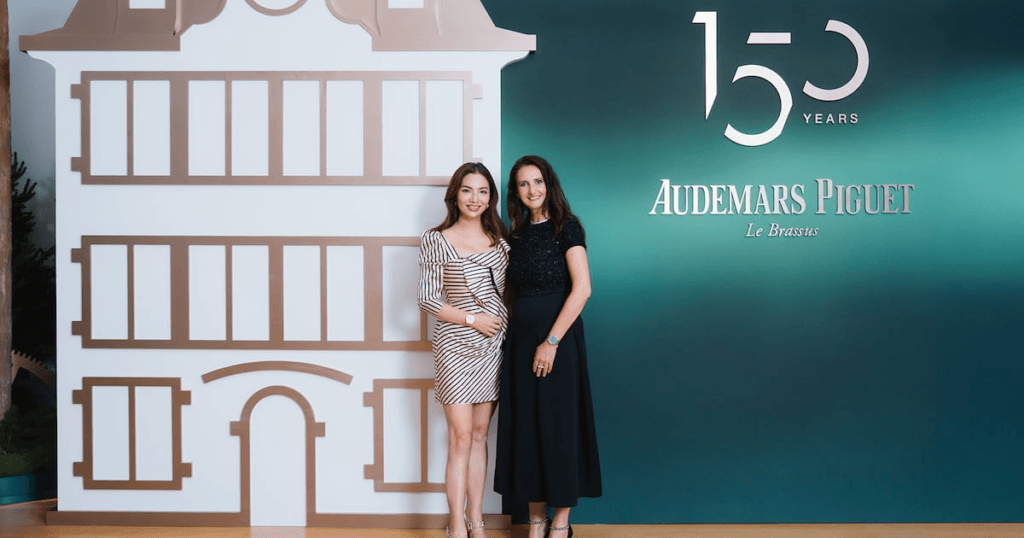Spain, in a way, has its own “Adolescence.” No company can hope to break out in their wildest dreams as the Netflix U.K. drama.
Nonetheless, where comparison can be drawn with Spanish series “Puberty” (“Pubertad”), Leticia Dolera’s follow-up as a creator to her top Canneseries prize winner “Perfect Life,” is that “Puberty” also focuses on the issue of teen violence, here filtered through the lens of adolescent sexual abuse.
Sold by Beta Film and to be released in Spain and Portugal by HBO Max on Sept. 24, “Puberty” was presented by Dolera and producer Miriam Porté at a high-profile press conference Monday, Sept. 22, at Spain’s San Sebastián Film Festival, where Dolera walked an industry audience through three emblematic scenes from the six-part series.
Porté recalled at the press conference that the project began with Dolera, whose early commitment allowed development to move forward. Once it had taken shape, the team turned to Catalonia’s cultural authorities. “Because this is not a series in Catalan, somehow it’s like a natural gateway, so they were the first to support the project,” she said. That support was quickly followed by Francisco Vargas, director of the audiovisual area at ICEC, who, Porté noted, “immediately understood that ambitious, large-scale, quality series needed support, and they supported us.” TV3 and 3CAT soon came on board. “It would have been impossible without HBO, totally impossible,” she added, describing the financing process as “very complex.”
In the first clip, Julia, a single mother and successful feminist journalist, and her teen son eat lunch with her father Marti Sr., (Lluís Marco) head of a local human tower collective in a small town in Catalonia, and Martí her brother played by Xavi Sáez, who will take over the group given the father’s illness. Martí Sr. is spoiling for an argument with Julia, its catalyst comes when the mother mentions in conciliatory fashion that there’s now even a feminist human pyramid. “Even with that, you lot aren’t happy,” spits Martí Sr. Julia rises to the bait. “Maybe they [feminists] have motives,” she answers back. “The kid needs a male reference,” Martí retorts. Julia’s son looks uncomfortable. Then Pol, Martí’s macho young teen son, turns up, who obviously won’t get on with Julia’s boy.
“The series has multiple layers,” Dolera tells Variety. “One is legacy, in many ways. One is cultural and patriarchal, another family-based and psychological. All the psychological inheritance, taboos, how masculinity models pass from father to son and grandson.”
By this time, the series has already shown the local castle team, rehearsing for a competition the next day. Why did Dolera set “Puberty” in a small Catalan town in the world of human tower builders? “The human towers reflect a society, how you have to work as a group,” she said. “Societies aren’t created by individualized stay-at-home members. Creating a castle means meeting people, doing something together, where values, structures, ethical consensus come into play. Today, that seems almost revolutionary — the human trust. If the castle isn’t well built, it will fall, because it’s fragile, like communities. So the human towers are a beautiful paradigm of human beings, of their light and shade, their contradictions.”
The second clip sees Julia meeting with Estel, a friend played by Betsy Túrnez (“The 47”), who recalls an incident when she was a teen with a boy, Ortiz, who wanted sex. She refused. He suggested oral sex instead. She didn’t want to, but went along. “This isn’t a case of crime, but an area which can generate wounds, traumas, in both parties,” Dolera explained. Later we see the incident marked Estel’s self-esteem, while Ortiz’s perception of women and sexuality is also warped.
Meanwhile, rumors build on social media that three teens in the castells team are involved in a sexual aggression case. In a third scene, the group debates what to do. Some want to go to the police. Others worry that going public will cost sponsors. Another reason for Martí’s caution may be that his son Pol is one of the accused. “The scene shows, above all, the confusion suffered by adults, who don’t know how to address the subject. It’s a key, centerpiece scene in the series,” Dolera said.
That confusion reflects a broader generational disconnect, Dolera suggested: “So, I think it’s about reflecting as a community on this problem that I believe is already blowing up in our faces, because I have the feeling that there are generations of kids who have grown up with a phone in their hands, and whose parents are a bit lost, also absorbed by a capitalist system that increasingly swallows them up and demands more of their time at work to pay for housing, to pay for a lot of things, right?”
“Puberty” is produced by Porté’s Distinto Films and Corte y Confección y Uri Films, both headed by Oriol Maymó, two of Catalonia’s most successful companies.
Launched by Miriam Porté, Barcelona-based Distinto Films is behind Berlin 2025 Panorama Audience Award winner “Deaf,” SXSW best performance laureate “Mamífera” and Lucía Aleñar’s “Forastera,” which just over a week ago scooped a Toronto Fipresci International Critics’ Prize for Emerging Filmmakers.
Maymó produced Cannes Jury Prize winner “Sirât,” series “Vida Perfecta” and “La Línea Invisible” as well as Sundance-selected “Buried” and took a production credit on “[REC 3] Genesis” and “[REC 4] Apocalypse.”
Distinto Films and Maymó’s Uri Films produce “Puberty” with Brussels’ AT-Prod. Go-ahead Catalan public broadcaster 3Cat co-produces.






















